Modern dSLRs are technological wonders. They are crammed with components, sensors, LCDs and advanced circuitry. They do everything but talk — and a few are working on that.
Despite all this technical wizardry, the average dSLR is fairly dumb. It can’t think. It knows nothing about art, composition or lighting effects. It doesn’t care if you are photographing a beautiful sunset or the local garbage dump. It doesn’t see the difference and wouldn’t care if it did.
Yet, far too many dSLR owners allow this non-thinking, non-appreciative hunk of electronics to rule over their photographic endeavors. “The camera knows best,” is their motto and the more automatic controlled features their cameras have the better the like it.
True photographers know better. They can appreciate the wonderful features camera designers have incorporated into their hardware, but they remain the master of the thing. They aren’t afraid to use manual modes, and more importantly, they know when they should. They are smarter than their camera and their work shows it.
Under perfect conditions — bright, overcast day with no shadows and lots of reflected diffuse light — any camera can capture wonderful images. The problem is those perfect conditions don’t come along very often and they don’t exist indoors. Or in a shady forest. Or at night. Or…well you get the idea. Most of the time, you and your camera have to work together to get the best images. You have to be a team –and in any team there has to be a leader. You have to step up, overrule your camera and force it to capture the images you want.
The more I use my digital cameras, the more I find myself reverting to some sort of manual control. That doesn’t mean I never shoot in a fully automatic mode — it’s just that more and more often I find that my knowledge and experience lets me make better decisions than my camera. Sometimes I’m wrong and the camera actually knows best. Much of the time, however, my images show a marked improvement when I take control.
How do you develop this knowledge? It can start gradually, by occasionally experimenting with manual settings. If you always shoot fully automatic, in the program mode, try a few of these suggestions next time you are shooting.
Turn off auto focus.
Auto focus is useful and can be a lifesaver many situations. However, if you always let your dSLR select the focus you may be missing out on some great images. You might prefer part of your subject be out of focus. Its an artistic decision and your camera can’t make that decision for you. In addition, no matter how fast camera makers make their AF systems, pre-focusing will always be faster. So try using manual focus when it is appropriate.
Switch out of the program mode
I am finding less and less use for the program mode when I shoot. Since I understand what type of image I am trying to capture and the camera can’t read my mind — I find I am far better at selecting the best combination of aperture and shutter speed to get what I want. Camera makers have gone to great lengths to add program modes like sports, night, portraiture and the like. The idea is you can set your camera to the appropriate mode and forget about it. Sometimes this works, but I find I get better results when I determine the optimal settings. lately, I have been shooting almost exclusively in aperture priority. I set the F-Stop and the camera selects an appropriate shutter speed. Occasionally I will use shutter priority — especially if the light is shifty and I want to make sure I don’t fall below a certain speed. Sometimes I will use full manual — when I want to ignore the camera’s meter in order to get exactly the shot I have in mind.
Of course you don’t have to use any single mode for an entire shoot — many times I will find myself shifting between all four modes during a busy session. The thing is, you have to learn which modes work best for which situations. So next time you are out, switch out of program mode for at least part of the time. Once you learn how to make decisions your dSLR could never make on it’s own, you may find the program setting will become your least used mode.
Play around with exposure compensation
Most dSLRs offer some form of exposure adjustment, which will allow you to override the actual meter reading by a set number of stops. Much of the time, the default setting will be very close, but if you are attempting a special effect or the light is tricky, exposure compensation can be your best friend. Learn how to use it to your advantage.
Experiment with contrast
If your camera offers contrast adjustment, learn how this can improve your images in varying lighting conditions. If you are shooting outdoors at noon on a bright, cloudless day, normal contrast may make your images appear awful. See if toning down the contrast will soften the shadows and eliminate hot spots. If the light is weak and dull, can you improve the image by cranking in some additional contrast?
Vary your flash settings
It’s true. camera makers have created some wonderfully intelligent flash units. Even the built in flashes can produce stunning results under the right conditions. But there are plenty of times when the flash should be overruled. Start with flash compensation. Try more or less compensation to see how the light changes. Experiment with different shutter speeds to see how that affects the background. If you have a separate flash unit, get a cord and try shooting with the flash off the camera. Experiment, You’ll get some duds, but you will also get some wonderful images. And you will never allow your camera to dictate how your flash should be used in the future.
I urge you to try all of these techniques when you get the chance. You might not use every one every time, but make it a point to try at least one of these each time you head out with your dSLR. If you do, and you ware willing to learn from your successes and your failures, you will quickly se your photographic IQ surpassing your cameras. When you are smarter than your camera, you will be well on the way to capturing some outstanding images.
Technorati Tags:
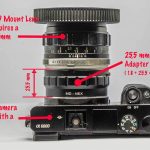
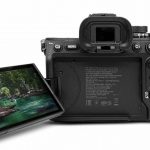
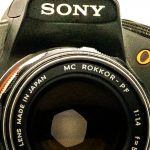

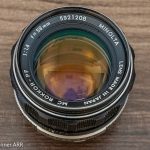
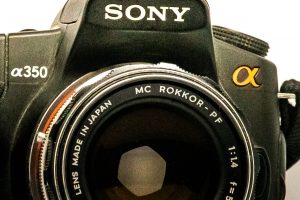

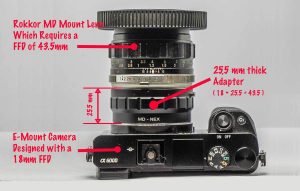
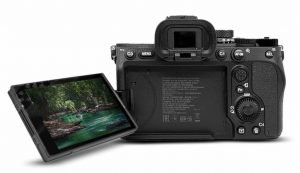

lol, those were great tips!
your blog is displayed on my entrecard now 😀 Have a happy new year!
Great post. I’m just learning to use my new Pentax K10d. I’m still trying to get a handle on all the manual adjustments. It’s a bit more complex than my old fully manual K1000. But I guess it’s all about learning how to use the tool.
And cost-wise, it’s a heck of a lot easier to experiment with digital than film.
Great tip on turning autofocus off. It took me forever to learn that one, but I definitely have more control over my pictures.
Reader’s New Year will be brighter with this idea!
All of people New Year will be better being aware of that!
All of people next year will be greater with this idea!
Just to mention… on new year’s eve : ]
this really is quite interesting. It presented me a number of ideas and I’ll become writing them on my webpage soon. I’m bookmarking your blog and I’ll be again. Thank you again!